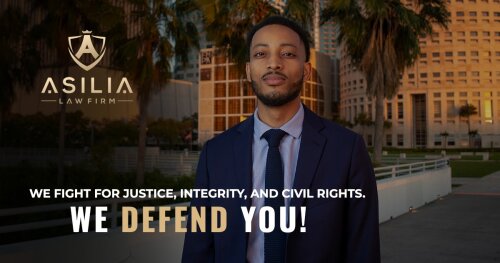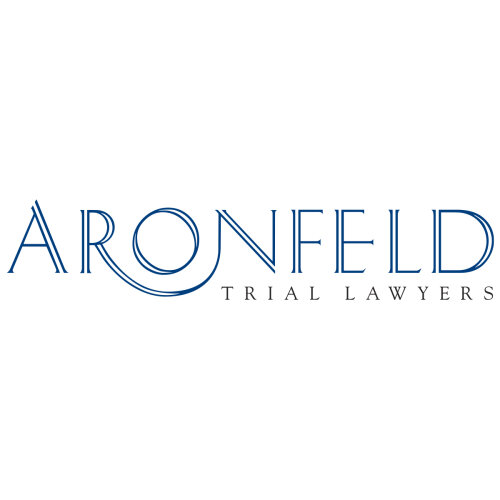Best Education Law Lawyers in Miami
Share your needs with us, get contacted by law firms.
Free. Takes 2 min.
List of the best lawyers in Miami, United States
About Education Law in Miami, United States
Education Law in Miami, United States, encompasses a range of legal issues involving schools, students, and educational institutions. It addresses matters such as school governance, student rights, discrimination, special education, and compliance with federal and state regulations. In Miami, education law also involves adhering to specific state statutes and district policies to ensure educational institutions operate within the legal framework while fostering an environment conducive to learning and development.
Why You May Need a Lawyer
Individuals may seek legal assistance in education law for various reasons. Common situations that necessitate legal help include:
- Disputes involving school discipline, such as suspensions or expulsions.
- Issues related to special education services and accommodations.
- Instances of discrimination or harassment based on race, gender, disability, or other protected categories.
- Concerns about educational equity and access.
- Legal challenges related to charter schools, private schools, or homeschooling.
- Disagreements over curriculum content or educational standards.
- Employment issues involving teachers, staff, and school administrators.
- Dealing with federal laws like the Individuals with Disabilities Education Act (IDEA) or the Every Student Succeeds Act (ESSA).
Local Laws Overview
In Miami, education law is shaped by both state statutes and local policies. Key aspects relevant to Miami include:
- Florida Education Code: This outlines the responsibilities of public schools, the rights of students and parents, and the obligations of school districts.
- Miami-Dade County School Board Policies: These include specific rules regarding discipline, special education, and non-discrimination policies.
- Charter School Regulations: Guidelines on the establishment and operation of charter schools, including accountability standards.
- Bilingual Education: Miami's legislation includes provisions for English Language Learners (ELL), given its diverse population.
Frequently Asked Questions
1. What rights do students have in Miami public schools?
Students have rights related to safety, privacy, nondiscrimination, and free speech. They are also entitled to special education services if they qualify under federal or state law.
2. How can parents advocate for special education services for their child?
Parents should start by requesting an evaluation from their school district. If needed, they can seek legal help to ensure their child receives proper accommodations under IDEA.
3. What is the procedure for contesting a school suspension or expulsion?
Parents should request a hearing to contest disciplinary actions. A lawyer can help ensure that the school's actions comply with due process regulations.
4. Are private schools subject to the same laws as public schools?
Private schools are generally less regulated but must still comply with basic safety standards and civil rights laws. They have more flexibility in their curriculum and admission processes.
5. How can a student or parent address discrimination in school?
Discrimination complaints can be filed with the school administration or the Equal Employment Opportunity Commission (EEOC). Legal assistance can be instrumental in navigating this process.
6. What options do I have if my child’s school is not providing adequate bilingual education services?
Parents can file a complaint with the school district or seek mediation. Ensuring compliance with local and state bilingual education requirements may necessitate legal advice.
7. How are homeschooling regulations determined in Miami?
Florida law requires parents to file a notice of intent with their district school board. Homeschoolers must also keep a portfolio of records and provide annual evaluations.
8. Can teachers or staff seek legal help for work-related issues?
Yes, teachers and staff may need legal help for issues such as breaches of contract, wrongful termination, or discrimination in the workplace.
9. What legal provisions exist for bullying and harassment in schools?
Miami-Dade County and Florida have anti-bullying policies that require schools to investigate allegations and protect victims adequately.
10. How can one learn more about education laws affecting them?
Individuals can explore resources through local school board meetings, the Florida Department of Education website, or by consulting with an education law attorney.
Additional Resources
For those seeking further information or assistance in education law, consider reaching out to:
- Miami-Dade County Public Schools - Division of Educational Opportunity and Access
- Florida Department of Education
- Florida Education Association (FEA)
- U.S. Department of Education - Office for Civil Rights
- Legal Aid Service of Broward County (Offers legal advice for education-related issues)
Next Steps
If you need legal assistance in education law in Miami, consider the following steps:
- Identify the exact nature of your legal issue and gather all pertinent documents or evidence.
- Consult with a lawyer specializing in education law to discuss your case and identify potential legal remedies.
- Explore mediation or negotiation as a means to resolve disputes without going to court.
- If necessary, prepare to file a formal complaint or lawsuit to protect your or your child's educational rights.
It's important to take timely action to ensure compliance with any deadlines specific to your situation.
Lawzana helps you find the best lawyers and law firms in Miami through a curated and pre-screened list of qualified legal professionals. Our platform offers rankings and detailed profiles of attorneys and law firms, allowing you to compare based on practice areas, including Education Law, experience, and client feedback.
Each profile includes a description of the firm's areas of practice, client reviews, team members and partners, year of establishment, spoken languages, office locations, contact information, social media presence, and any published articles or resources. Most firms on our platform speak English and are experienced in both local and international legal matters.
Get a quote from top-rated law firms in Miami, United States — quickly, securely, and without unnecessary hassle.
Disclaimer:
The information provided on this page is for general informational purposes only and does not constitute legal advice. While we strive to ensure the accuracy and relevance of the content, legal information may change over time, and interpretations of the law can vary. You should always consult with a qualified legal professional for advice specific to your situation.
We disclaim all liability for actions taken or not taken based on the content of this page. If you believe any information is incorrect or outdated, please contact us, and we will review and update it where appropriate.









